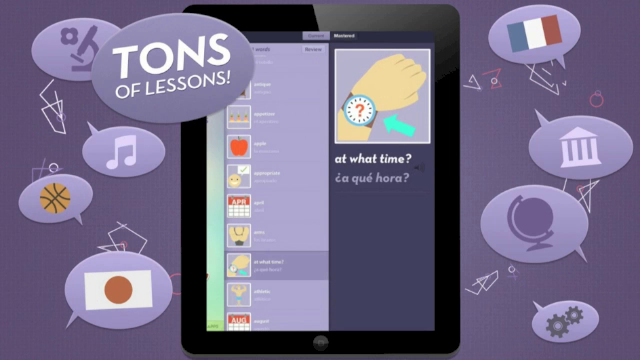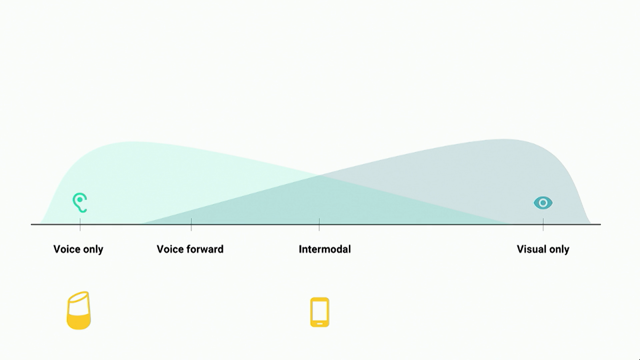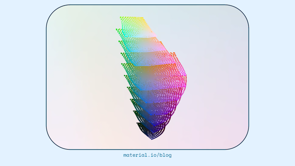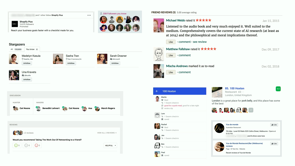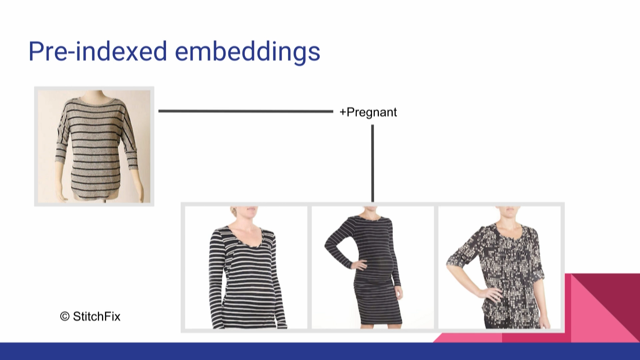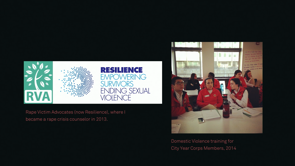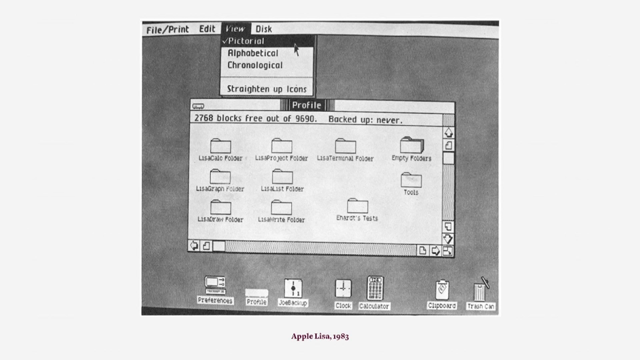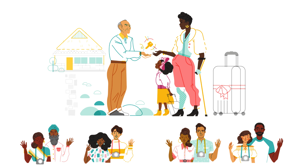How UX Can Help Us Humanize Products in the COVID-19 Era (and Beyond)

(upbeat music) - Hi, my name is Ashley Hefnawy and I am going to talk to you a little bit about UX, specifically through the lens of writing and how I have re-imagined it as the human experience rather than user experience.
So, the name of this talk is UX = The Human Experience, How UX Can Help Humanise Products in the Age of COVID-19 and Beyond, ideally.
This is a little run of show, what we'll be covering. I'm gonna give you a little bit of an intro on who I am, why I'm here, why you are listening to me talk about this, we'll talk a little bit about what UX writing is, since many people don't seem to know, though, I imagine that most people watching this have a solid grasp of what it is, we're going to compare UX user experience and what I've coined as a term that applies to the way I practise my skills and write with my clients, human experience, we'll talk a little bit about the Umami Theory and we'll end with the reckoning of 2020 and cover a little bit about what I think products need to do beyond branding and beyond relying on communications and language to basically relay what it is that they, what it is, the purpose that they serve.
So, a little bit about me, I am a creative person, I'm a writer, I'm an interdisciplinary artist, community events organiser, cat owner, she's actually sleeping on a chair right next to me and I'm hoping that she doesn't decide to wake up and walk over my camera, but I think she's in her sleep for the next 24 hours and won't.
I have been writing for about a decade now, professionally. I've worked with a number of clients and companies, large and small, in basically any capacity you could think of when it comes to communications. So, I've worked as a copywriter for marketing web product and in the last couple of years, I have pivoted to UX writing and I found it to be quite fascinating, strange, interesting, meta and I've also found that as a UX writer, I'm often hired to help companies and brands humanise their voice and help them ensure that different aspects that make up their product experience are clear and easy to follow without making anybody feel left behind.
So, what the heck is UX writing? A lot of people I talk to about UX writing have no idea what it is, especially when you're talking to people outside of the tech space.
I find it kind of funny because I think it's embedded in absolutely everything we do and ultimately, I think that UX writing as a name is what throws people off.
But when you actually explain what it is, the purpose that it serves, people tend to understand. So, a couple of points that I have turned to for explaining what UX writing is, is that, it's the communications that help us get from point A to point B.
I think of it as extremely meta.
It's like, we're talking about the box within the box and oftentimes when experiencing UX and UX writing, the people who are experiencing it are not necessarily cognizant of what it is that they're engaging with.
So, why is that? Is it because they have a bit of a brand association already and so, the minutia, maybe the UX writing falls under that, kind of gets swept under the rug. But on the other hand, I really do think of it as the vibe. It's like the atmosphere we feel when we're inside a product experience and if it's bad, it can really make us feel dumb or it can make us feel frustrated, it can make us feel like we don't get technology. This is an experience that I have regularly with different products and different apps and I imagine many people have this experience as well. So, I always try to explain it in the most simple way possible, which is why I turned to these points and I've done this so many times that I've started to wonder if I should just reframe the way I talk about it and talk about users instead, speaking to the humans and the people that are actually using the products rather than generalising them with this term that people don't really understand unless they work in that space. So, the reason we're talking about it today is a number of things.
I, like many people during this strange and bizarre year, have really evaluated the work that I've been doing and evaluated the landscape in which UX writing and my writing exists within this COVID-19 era.
I have noticed that humanity and the people around me, especially have turned to products and systems for help in times of distress, more than ever. I think that good products that help humanity require UX that does not get in the way and that's kind of like what I was explaining before. If you're in a product experience that is really positive, you're probably not really thinking about the UX that much and that's kind of why I think of it as very meta. I think that good UX writing relies on a product that cares about its people.
You can't have good UX if the product doesn't care about its users and that really is like, I think the foundation of it all.
Like, you can't necessarily use UX writing as a way to cover up a product that doesn't care or a product that actually has no purpose.
So, we're framing UX writing in COVID-19, this year of 2020 and I'm personally thinking about the future and what UX writing and what my work will look like and how it will evolve and perhaps how things will change. So, I think personally, I think there's no returning back to normal, I think that everything is different and going to continue to evolve as this pandemic continues. I think I've seen so many things get the magnifying glass treatment.
I have noticed how cancel culture lacks depth and that is honestly a topic for an entirely different presentation because I could speak on that forever and I think accountability is really where it's at. I think that we are trying to hold ourselves accountable, we're trying to hold our communities accountable and we're trying to, as much as we can, hold the products we engage with accountable. So, how does this affect UX writing and products? This is where I introduce a concept that is maybe not totally groundbreaking, but something that really, something that dictates the way that I work. So, I've reframed user experience as human experience and I've done this for a couple of reasons. One, part of my job often when working with clients is to name things, come up with new names during a rebrand and if I had been involved in the naming of user experience, I probably would have renamed it to human experience. Like I said, not totally groundbreaking, what's the difference between human and user, but I think there's actually a lot of differences between the two.
I think that human feels more natural, I think that user feels extremely generic and we can go ahead and break that down in the following slide.
So here we have a comparison between UX and HX. For the purposes of these lists, I am just thinking about user versus human. The key differences between UX and HX are that HX doesn't really feel like jargon to me. Maybe if you think about it in terms of the abbreviations, sure, but once somebody understands that HX stands for human experience, it feels like a term that is actually meant to be public facing. The human experience feels philosophical, it feels less enigmatic and it peaks curiosity. Human experience not only leaves room for natural curiosity and opens doors to conversations about the actual work that I do, but it also kind of allows me to talk about how writing within product spaces helps humans. It helps me talk about how I assess values with all the clients I work with, the value of the work that I'm providing and the value of the service or product that is being created and this really comes down to a much bigger picture way that I work personally, which is values first. I always have a value assessment when it comes to taking on new projects.
Does this product match with my own values? Do I see the value that I'm bringing to this product as something that is needed or worthwhile? And I think that ultimately plays into why I think of user experience as human experience. I don't see products as these little siloed worlds that are created for, you know, ideal users, I think they exist within a landscape and a narrative that is real and so often I think we encounter products that are slow to evolve with the reality of the world that they exist in.
So, to compare all of this to user experience, this feels like a child of the tech space, user experience, which is totally fine, but I think in 2020, if we're giving everything a reevaluation and the nature of my work is evolving, I can't help but feel as though the word that I use to describe the work that I do deserves a reevaluation as well.
When it comes down to it, I strive to write human experience copy, copy that is cognizant of the world and the environment in which it is situated. So, let's look at a couple of examples, so that you can actually start to wrap your head around what I'm talking about.
I think that looking at products and services that exist within this 2020 landscape is a really perfect way to bring to life the concept that I'm talking about. So we have Airbnb, it's a well-known service that provides hotel like accommodations on a very local scale where people offer up their homes to people who are travelling.
So, throughout the experience on Airbnb, you are reminded that travelling is not necessarily something we can all afford right now, but something that we all still deserve and that there are ways to do so safely.
It is not lost on me in the experience of the Airbnb app that we are living in the middle of a pandemic and that is made clear through lots of messaging that is not alarmist, but real and human, letting us know that hosts are taking extra safety and cleaning measures to make sure that they are creating sanitary spaces for the people who are coming to visit, all of the protocols are regularly updated and very clear at the front and centre of every page that you navigate to and I think it's just a great way to see how a service has adapted to a time that is unprecedented. I think ultimately, Airbnb had no choice but to do this, but if they didn't, they would shut down and lose business in the longterm and I think that if they don't acknowledge the reality of our times, they risk not only losing business in the short term, but damaging their reputation in the longterm. So, here's another example of a hospitality service and there's a reason I chose hospitality.
I think it is the most simple example of human experience communication right now because they are dealing with humans who are trying to have an experience other than the reality, perhaps that they are living in, staying locked indoors in their homes.
As we've learned this year, there are safe ways to travel and it is, I think, the responsibility of the people who create services to help accommodate travellers, to let them know that they are safe and that these options are viable.
So, another example that I'd like to talk about is this app called One Night.
It offers people the chance to book hotel rooms at extremely discounted rates one to two days in advance. I think the concept is great and I'm personally probably going to test it out, but I did notice one area that they really missed out on from a communications and human perspective, which is this 24 hour guide that they have pretty centrally located in the app.
Basically, you'll see a list of hotels that come up with different rates based on the dates that you select and once you navigate to the hotel page and below the booking CTA option is a 24 hour guide and it is in theory supposed to give people tips on what they can do around the hotel for the duration of their stay.
I think this is a fantastic idea, embedding a sort of local guide into the app. However, I've noticed that the tips don't take anything into consideration about the reality of what it is that travellers are living through right now. If people are coming to New York, they're going to have a really different experience in this moment than they would otherwise.
Perhaps the restaurants that they want to go to are no longer open for business or if they are, they might have a really different environment for how people can come to experience their restaurant.
Music venues are not open, people aren't going out dancing. You know, bars, many of them have outside seating now, but they also have to serve food, so that kind of makes a lot of bars off the table in terms of business.
So, these are all things that I saw in the 24 hour guides and I was shocked because I felt like it totally disregarded the moment that we're living in and was a missed opportunity to show people, hey, we care about you, here's some tips that actually might be viable for you during your stay. We know that you need a break, we know that you're coming to this hotel, this hotel is still open and functioning, but things are a little bit different and here are some fun safe ways for you to engage with your surroundings while still pressing messaging that is both human and also care centred, letting people know that you care about their safety and wellbeing.
I understand that all of this is grim, but I think it's the reality and I think in order for products to continue to evolve and to grow in a time after this pandemic, they need to consider the things that we are learning about ourselves, about society, about humanity, about how we engage with each other, about how we engage with brands and products that we come to trust and work less in a reactive state and more in a planning and responsive state. So, the Umami Theory, for the record, the title of this slide and the quote credit both link to the full memo that was written by Nemesis, which is a consulting duo composed of Emily Segal and Martti Kalliala.
The essence of their memo is that we've been coasting on this experience economy, which ultimately lacks depth and has more to do with surface desire than actual desire. It's part of the reason why apps like Instagram, Twitter, Facebook are so successful.
They sell and promise you one thing, which is that you control your online persona, your brand, you control how you are perceived, which quite frankly, I think is impossible, when in reality, they're actually selling you, the user or the human.
I bring this up because surface desire and the lack of depth feels connected to the way I feel when I talk about the bad user experience.
Like, how could I not be thinking about the user the whole time while creating a product, it really baffles me, but the vision needs to be consistent, you can't just hire me to fix a problem and make your product sound more human if it wasn't created for a human experience to begin with. So one of the quotes says, "We believe that umami has been both literally and figuratively the key commodity of the experience economy.
Umami as both a quality and effect of an experience popped up primarily in settings that were on the verge of disintegration and hinged on physical pilgrimages to evanescent meccas.
We also believe that the experience economy is dying. Its key commodity, umami, has changed status and nobody knows what's coming next." I bring all of that up to ground us back in 2020 and to allow us to sit and meditate with what it is that this year is forcing us to reckon with. 2020 has shown us how broken and fragile our existing systems are, which absolutely applies to the products we rely on and the ways in which we engage with each other. Our society, our products, our brands that we know and love are all being put through what I like to think of as therapy.
The ones that are ready and willing to receive help are willing to change and the ones that are ready for the truth are also willing to change.
But the ones that are founded on lies may not survive. The truth is that we can't keep pretending that products are used by humans in an ideal state. Most of us who use an iPhone right now, for example, are not living in an ideal world and I think the iPhone has generally adapted its systems and the ways that it engages with humans to try and help us. But ultimately, if we want to continue to create products for people who are living in reality, we have to acknowledge that our products are embedded into the human experience and that the writing that helps get us from point A to point B within a product needs to acknowledge that.
It's not possible or sustainable anymore to talk to people as if they're robots or treat them like they're children.
So, as we continue to move forward in this world beyond COVID-19 era, we have to imagine a time that is not now and even though it might be hard to envision, we have to imagine that we will see shifts, not only in the ways that we understand what humanization means for ourselves and how we relate to other people, perhaps if we're lucky, the presence of masks will be more widespread in an effort to show others that we care about their health just as much as we care about our own, or perhaps we'll see the evolution past a handshake greeting and how we relate to products.
I imagine as we move forward in this world of work post COVID-19, we will see shifts, not only in the ways that we understand what humanization means for ourselves and how we relate to one another, but how we relate to products.
I'm hoping that maybe masks become more widespread. I think that this is a moment in our humanity where we are, at least I can speak for myself in New York City, dealing with systems of care on a level that maybe we're not used to.
So, wearing a mask for not yourself, but for other people is a system of care.
I don't think people are used to that necessarily because we live in a society that is so focused on the individual.
I am imagining a world in which products that make their ways into our lives are actually given substantial thought, not because of empty brand associations and as a brand strategist, I can also say that it is wild what you can sell if it just looks pretty, but because I think the products need to actually work. The products can't complete us, rather, they help us be better humans to ourselves and to each other.
So, when I say products that are beyond branding, I'm thinking of products that are mindful of the human experience, that challenge capitalist desires for wealth and power and oftentimes, what we attribute to success. I'm thinking of products that centre the human and their relationship to the product.
I'm thinking of products that don't rely on brand associations and honestly, I'm thinking of products that don't want us to be codependent.
That's not how healthy relationships work in real life from human to human and that isn't how I imagine us evolving with technology in mind.
At the end of the day, I think that our products need to help us be better humans to ourselves and be better to each other and that doesn't mean that you need to start creating products that are wellness or health inspired, I'm saying that that can happen within any context for any product.
So in conclusion, what have we covered, what have we talked about, what is this all about? When I'm thinking of user experience writing and human experience writing in the future, I'm thinking of human experience as one that acknowledges the human using the given product and stops talking about them as some user.
They're not a dog, they're not an animal, they're not, you know, an inanimate object. They are human and they have real emotions and require empathy and compassion and that is all language that is sprinkled into UX principles and how we teach people to work in UX spaces, but I think it needs to be levelled up. It needs to acknowledge that this societal narrative that a product is part of is extremely important, that the product doesn't exist in a bubble, but that iPhones are used by people of all walks of life, that products are used by people of all walks of life and I think, especially for me as a writer, I'm going to be thinking about the intention behind communication and what that communication serves, how it can help somebody, not just get from point A to point B, but you know, really have an experience that is meaningful and impactful and less passive.
So, that's all I have for you today, I hope that made sense. I really enjoyed giving this talk.
This is a topic that is very near and dear to my heart and that matters a lot about the work that I do. Thank you for tuning in and I hope you have a wonderful rest of your day and that this talk helped you learn a little bit about products and about writing and about meaningful communication.
Thank you.

